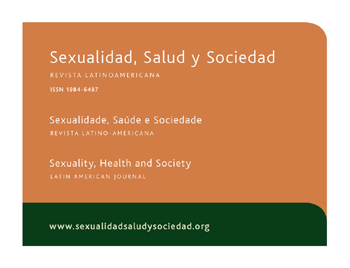FROM THE EDITORS
Since its creation, one of the main goals of Sexuality Health and Society has been to explore the ways in which regulations, conventions and norms about sexuality are specified in Latin America, intensifying and transforming more general tracks otherwise observed in national contexts at the "center" of the configuration conventionally known as the "West".
This thirteenth issue makes a meaningful contribution to that goal, by means of important empirical engagements and instigating interpretations. Del Rio Fortuna's careful comparative assessment of access to surgical contraception, in countries geographically as near as Argentina and Brazil, alerts about the dangers of quick generalizations regarding processes of sexual regulation in the region. The meanings of female surgical contraception at each of those contexts show stark contrasts, not only based on demographics, but also in relation to the social groups involved and the different rationalities framing that practice.
Three other articles in this issue address sexual regulation in locations other than the medical-sanitary field classically conceived as focus of sexual investments. Leal Guerrero in Argentina and Zago in Brazil, each explore homo-erotic on-line sociability, tracking displacements in gender and sexuality conventions within that milieu. They highlight significant continuities regarding, on the one hand, Western representational conventions about eroticism and masculinity; and, on the other hand, the subtle entanglement of a sexuality device which - at least in Zago's view - becomes reinvigorated.
Altmann also discusses a possible renewal of the sexuality device. She focuses on recent Brazilian educational experiments around so-called "sexual diversity". In the same direction, Gil Hernandez interrogates LGBT politics in Bogotá, Colombia. He applies Judith Butler's arguments to link certain aspects of those politics to the re-emergence of sexual norms and the restoration of exclusion mechanisms.
To conclude Cutuli's reflexive text revisits the ways scientia sexualis itself - in this case its socio-anthropological facet - invests its "objects". She discusses the tense and ambiguous negotiations underlying the production of knowledge about subjects who are still located at the margins of sexual morality.
Publication Dates
-
Publication in this collection
18 Apr 2013 -
Date of issue
Apr 2013

